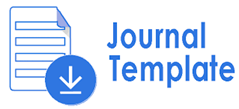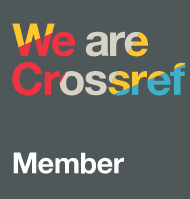Student's Metacognitive Awareness Inventory (MAI) of English Language Education Study Program
Abstract
Keywords
Full Text:
PDFReferences
Abdelrahman, R. M. (2020). Metacognitive awareness and academic motivation and their impact on academic achievement of Ajman University students. Heliyon, 6(9), 1–8. https://doi.org/10.1016/j.heliyon.2020.e04192
Allan, J. L., Sniehotta, F. F., & Johnston, M. (2013). The Best Laid Plans: Planning Skill Determines the Effectiveness of Action Plans and Implementation Intentions. Annals of Behavioral Medicine, 46(1), 114–120. https://doi.org/10.1007/s12160-013-9483-9
Baker, L., Zeliger-Kandasamy, A., & DeWyngaert, L. U. (2014). Neuroimaging Evidence of Comprehension Monitoring. Psychological Topics 23, 1, 167–187. https://hrcak.srce.hr/file/178358
Bernanda, L. K. S. (2021). Junior Students’ Self-Regulation Strategies in Dealing with Assignments. IDEAS: Journal on English Language Teaching and Learning, Linguistics and Literature, 9(1), Article 1, 30-44. https://doi.org/10.24256/ideas.v9i1.1767
Bessy, M., & Knouse, S. (2020). Metacognition, Metalinguistic Awareness, and Relevance in Language learning: A Report on an Intervention Module Project. International Journal for the Scholarship of Teaching and Learning, 14(2), 1–10. https://doi.org/10.20429/ijsotl.2020.140209
Dolinting, P. P., & Pang, V. (2022). The Classroom Climate, Students’ Mathematics Achievement, Students’ Knowledge of Cognition and Regulation Cognition: A Mediation Analysis. Malaysian Journal of Social Sciences and Humanities (MJSSH), 7(6), Article 6, 1-19. https://doi.org/10.47405/mjssh.v7i6.1533
Doyle, B. (2013). Metacognitive awareness: Impact of a metacognitive intervention in a pre-nursing course. LSU Doctoral Dissertations. Louisiana State University and Agricultural and Mechanical College. https://doi.org/10.31390/gradschool_dissertations.2644
Fauzi, A., & Sa’diyah, W. (2019). Students’ Metacognitive Skills from the Viewpoint of Answering Biological Questions: Is It Already Good? Jurnal Pendidikan IPA Indonesia, 8(3), Article 3, 317-327. https://doi.org/10.15294/jpii.v8i3.19457
Frolova, A. (2022). Metacognitive Awareness as a Destructive Risk Factor Prevention in Educational Environment. Proceedings of International Forum Teacher Education-2021, Russia, 5, 407–418. https://doi.org/10.3897/ap.5.e0407
Hassan, S., Venkateswaran, S. P., Agarwal, P., & Sulaiman, A. R. (2023). Metacognitive Awareness and Its Relation to Students’ Academic Achievement: Time to Ponder Its Implication in Delivery of Curriculum. Education in Medicine Journal, 15(4), 53–65. https://doi.org/10.21315/eimj2023.15.4.4
In’nami, Y., & Koizumi, R. (2022). The Relationship Between L2 Listening and Metacognitive Awareness Across Listening Tests and Learner Samples. International Journal of Listening, 36(2), 100–117. https://doi.org/10.1080/10904018.2021.1955683
Ivanchei, I. I., & Servetnik, M. (2023). Metacognitive awareness is needed for analogical transfer between dissimilar tasks. Journal of Cognitive Psychology, 35(1), 110–124. https://doi.org/10.1080/20445911.2022.2115501
Jariyah, I. A., & Ummah, K. (2022). Kesadaran Metakognitif Mahasiswa pada Perkuliahan Sistem pada Hewan dengan Penugasan Berbasis Portofolio dan Jurnal Belajar. Bioscientist : Jurnal Ilmiah Biologi, 10(2), 1209–1217. https://doi.org/10.33394/bioscientist.v10i2.6719
Kaivanpanah, S., Alavi, S. M., & Rafsanjani Nejad, S. (2019). Depth of Processing in Different Instructional Conditions and Iranian Learners’ Interpretation of English Inversion Structures. Journal of Modern Research in English Language Studies, 6(3), 32–1. https://doi.org/10.30479/jmrels.2019.11445.1422
Kessler, M. (2021). The longitudinal development of second language writers’ metacognitive genre awareness. Journal of Second Language Writing, 53, 100832. https://doi.org/10.1016/j.jslw.2021.100832
Leung, P. (2017). Focus on content-based language teaching. International Journal of Bilingual Education and Bilingualism, 20(5), 604–606. https://doi.org/10.1080/13670050.2015.1126987
MacKewn, A., Depriest, T., & Donavant, B. (2022). Metacognitive Knowledge, Regulation, and Study Habits. Psychology, 13(12), 1811–1821. https://doi.org/10.4236/psych.2022.1312112
Mendoza, J. A., Elepaño, C. J. T., Mendoza, J. A., & Elepaño, C. J. T. (2023). Metacognitive awareness levels of pre-service teachers. World Journal of Advanced Research and Reviews, 17(3), Article 3. https://doi.org/10.30574/wjarr.2023.17.3.0393
Moshman, D. (2018). Metacognitive Theories Revisited. Educational Psychology Review, 30(2), 599–606. https://doi.org/10.1007/s10648-017-9413-7
Nababan, M. R. (2006). Investigating Declarative Knowledge of Professional Translators. Kajian Linguistik Dan Sastra, 18(2), Article 2, 101-112. https://doi.org/10.23917/kls.v18i2.5054
Nurfadhilah, G. (2016). The Investigation of Students’ Metacognition in Reading Comprehension. Journal of English and Education, 4(1), Article 1, 23-39. https://ejournal.upi.edu/index.php/L-E/article/view/4618
Ramadianti, W., Priatna, N., & Kusnandi, K. (2020, July 30). Procedural Knowledge Versus Conceptual Knowledge of Fraction: An Indonesian Junior High School Case Study. Proceedings of the 7th Mathematics, Science, and Computer Science Education International Seminar, MSCEIS 2019, 12 October 2019, Bandung, West Java, Indonesia. https://eudl.eu/doi/10.4108/eai.12-10-2019.2296501
Rinaldi, R., & Rahmatillah, F. (2022). Metacognitive Awareness in Students. Jurnal Neo Konseling, 4(4), Article 4, 15-20. https://doi.org/10.24036/00692kons2022
Schraw, G., & Dennison, R. S. (1994). Assessing metacognitive awareness. Contemporary Educational Psychology, 19(4), 460–475. https://doi.org/10.1006/ceps.1994.1033
Silistraru, N., & Vetrila, S. (2023). Metacognition as a component of intelligent behavior. Vector European, 2, 124–128. https://doi.org/10.52507/2345-1106.2022-2.25
Stanton, J. D., Dye, K. M., & Johnson, M. (2019). Knowledge of Learning Makes a Difference: A Comparison of Metacognition in Introductory and Senior-Level Biology Students. CBE—Life Sciences Education, 18(2), 1–13. https://doi.org/10.1187/cbe.18-12-0239
Syahidah, I., Suryati, N., & Muniroh, S. (2023). Metacognitive Reading Strategies Awareness in English Language Context among Aviation Cadets. The Journal of English Literacy Education: The Teaching and Learning of English as a Foreign Language, 10(1), Article 1, 93-109. https://doi.org/10.36706/jele.v10i1.20998
Tuononen, T., Hyytinen, H., Räisänen, M., Hailikari, T., & Parpala, A. (2023). Metacognitive awareness in relation to university students’ learning profiles. Metacognition and Learning, 18(1), 37–54. https://doi.org/10.1007/s11409-022-09314-x
Üstünbaş, Ü., & Alagözlü, N. (2021). Efficacy Beliefs and Metacognitive Awareness in English Language Teaching and Teacher Education. Bartın Üniversitesi Eğitim Fakültesi Dergisi, 10(2), 267–280. https://doi.org/10.14686/buefad.828035
DOI: https://doi.org/10.33373/chypend.v10i1.5959
Refbacks
- There are currently no refbacks.

This work is licensed under a Creative Commons Attribution-NonCommercial-ShareAlike 4.0 International License.
Copyright (c) 2018 Universitas Riau Kepulauan

Ciptaan disebarluaskan di bawah Lisensi Creative Commons Atribusi 4.0 Internasional.















